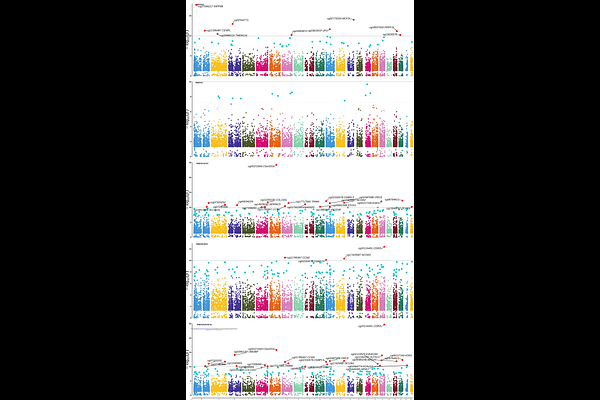DNA-methylation markers associated with lung function at birth and childhood reveal early life programming of inflammatory pathways

DNA-methylation markers associated with lung function at birth and childhood reveal early life programming of inflammatory pathways
Kachroo, P.; Shutta, K. H.; Maiorino, E.; Moll, M.; Hecker, J.; Carey, V. J.; McGeachie, M. J.; Litonjua, A. A.; Celedon, J. C.; National Heart, Lung, and Blood Institute Trans-Omics for Precision Medicine (TOPMed) Consortium, ; Weiss, S. T.; DeMeo, D. L.
AbstractRationale: Lung function deficits may be caused by early life epigenetic programming. Early childhood studies are necessary to understand life-course trends in lung diseases. Objectives: We aimed to examine whether DNA-methylation at birth and childhood is associated with lung function growth. Methods: We measured DNA-methylation in leukocytes from participants in two childhood asthma cohorts (CAMP [n=703, mean-age 12.9 years] and GACRS [n=788, mean-age 9.3 years]) and cord blood from participants in the VDAART study (n=572) to identify CpGs and pathways associated with lung function. Results: We identified 1,049 consistent differentially methylated CpGs (608 relatively hypermethylated) across all three studies (FDR-P<0.05). Relatively hypomethylated CpGs were enriched for gluconeogenesis, cell adhesion and VEGF signaling. Relatively hypermethylated CpGs were enriched for Hippo, B-cell and growth hormone receptor signaling. Functional enrichment suggested potential regulatory roles for active enhancers and histone modifications. Additionally, enrichment in PI3K/AKT and Notch pathways in males and enrichment in hormonal pathways in females was identified. Gaussian graphical models identified sex-differential DNA-methylation nodes and hub scores at birth and childhood. Integrating with previously identified polygenic risk scores for asthma and drug-target enrichment identified seven robust genes including MPO, CHCHD3, CACNA1S, PI4KA, EP400, CREBBP and KCNA10 with known associations as biomarkers for asthma severity and drug targets for airway inflammation. Conclusions: Epigenetic variability from birth through puberty provides mechanistic insights into fetal programming of developmental and immune pathways associated with lung function. These early life observations reveal potential targets for mitigating risk for lung function decline and asthma progression in later life.